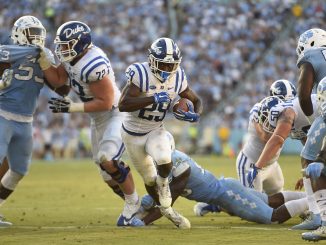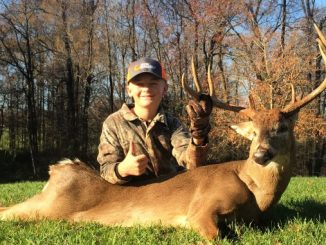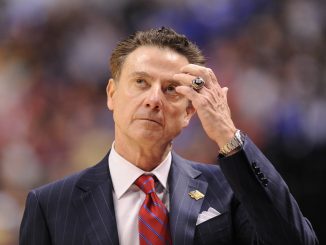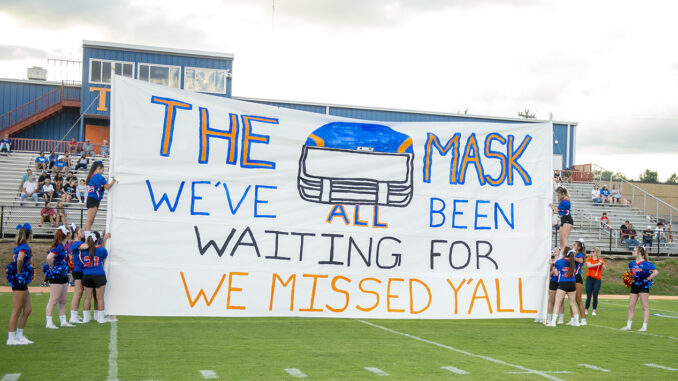
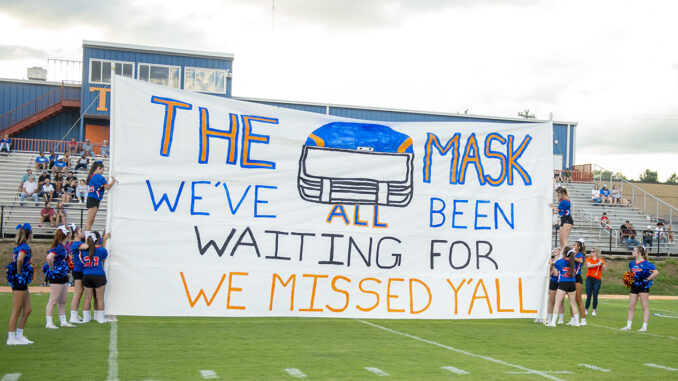
Purnell Swett High School is scheduled to play a football game on Friday.
Under normal circumstances, that wouldn’t be considered breaking news, since high schools across North Carolina traditionally play football on Friday nights this time of year. Current circumstances, however, are anything but normal because of the continuing coronavirus pandemic.
Especially at Purnell Swett, a school with about 1,600 students located near the South Carolina border in Pembroke.
The Rams have yet to play a game this season because of three separate quarantines, the result of positive COVID-19 tests among their ranks. It’s a frustrating situation athletic director William Deese hopes will soon finally be over.
After five postponements or cancellations, though, he’s not taking anything for granted until his school’s team actually takes the field to play at Jack Britt.
“We’re ready, but you never know if you’re going to be able to play until it’s time to play,” said Deese, whose volleyball and boys’ soccer teams have also had games affected by COVID. “As an athletic director and a coach, it’s been hectic trying to wrap your mind around how we’re going to do this and how we’re going to do it safely. This has affected everybody.”
An unofficial count conducted by Chris Hughes of CarolinaPreps.com shows that at least 65 scheduled high school football games from Murphy to Manteo have either been called off or are waiting to be rescheduled because one or both teams were unable to participate.
In at least one instance, the team from Pisgah High was on the bus traveling to a road game at Brevard when its coach got a call to tell them that the opposing team had been quarantined and the game couldn’t be played.
To fill the void, those in charge of unaffected teams have been forced to get creative to fill unexpected gaps in their schedules.
When Cape Fear’s football game against Purnell Swett was called off last week, coach Jake Thomas began reaching out to others in hopes of finding a replacement opponent for his Cumberland County school. He eventually got in touch with Anthony Timmons, his counterpart at Knightdale High in Wake County, who was also looking for a game.
The two quickly put together the details and played on the Colts’ home field Friday, with the visiting Knightdale coming away with a 33-13 victory.
Across the state in Cherokee County, Murphy High coach Joseph Watson has had to seek out opponents from out of state to fill gaps in his team’s schedule because of their proximity to the borders of Georgia and Tennessee, and the small number of North Carolina schools within realistic driving distance.
“Our third week we were supposed to play a team that had COVID and couldn’t play, and then the very next week we had another one. So here I was a week out trying to find a game,” Watson said. “That’s the hard part because you want your kids to play. The challenge is finding a game and one that’s not forever far away.”
The first game Watson picked up was against Rabun County from Georgia, one of the top teams in the nation whose quarterback, Gunnar Stockton, is ranked No. 1 by several recruiting services. The second was against Cherokee High from Tennessee.
“It’s been tough because you have to deal with it each week,” Watson said. “It’s inevitable you’re going to have somebody out each week. Football coaches always say next man up, and that’s what you’ve got to do. Everybody’s got to be ready for it. I guess that’s the way it’s going to be for a while.”
While rural areas such as Robeson County — where Lumberton, St. Pauls and Red Springs have also lost multiple games in addition to Purnell Swett — and the Western mountains, where Murphy is located, have been especially hard hit, the more populated regions of the state have not been exempt from the recent surge caused by the delta variant of COVID-19.
The Orange County Health Department last month recommended a two-week shutdown of all football activities because of the uptick in cases. It also called for a halt to offseason practices for basketball and wrestling, along with proposed modifications for volleyball and soccer competition.
Although the measure was voted down by the county school board at a meeting on Sept. 13, the board did decide to limit spectators to two per player while requiring them to wear masks at the games.
“I have a level of discomfort with a lot of this,” board member Brenda Stephens said. “I don’t feel comfortable singling out just the athletes.”
Despite Stephens’ sentiment, statistics released by the N.C. Department of Health and Human Services showed that sports teams were responsible for 45% of COVID clusters reported in state middle and high schools.
And a disproportionate number of those cases, according to N.C. High School Athletic Association Commissioner Que Tucker, is associated with football.
“Sometimes that has to do with the sheer numbers of athletes involved,” Tucker said. “The amount of students participating makes football a little more susceptible to someone coming into close contact or testing positive to COVID.”
Despite the numbers, all the cancellations and the potential for newer, stronger variants of the virus being discovered, Tucker is confident the fall sports season will come to a successful conclusion just as it did during the rescheduled 2020 season that was played last spring.
“If you’d have asked me how confident I would be last Christmas when we didn’t have the vaccine and had some of the other issues we had then, it doesn’t compare to what I feel now,” she said. “I feel much more confident that we will be able to weather this.”
Not everyone is as optimistic.
“Absolutely, I’m concerned. We’re all concerned,” Cape Fear athletic director Reggie Fields said when asked about the possibility of the season coming to a premature end because of the pandemic.
“We’re also concerned with how the conference schedules are going to go in terms of what we’re going to do if everybody doesn’t play the same amount of conference games. How fair is that going to be for teams that may or may not be in the playoffs?”
Given the number of unplayed games already on the books, it will be nearly impossible for all 427 NCHSAA member schools to complete their respective conference schedules.
Anticipating such a scenario, Tucker said it will be up to each league to individually decide on its criteria for postseason qualification. Once the field in each of the state’s eight classifications is set, a computer-generated ratings percentage index (or RPI) will be used to determine seedings.
Other issues aren’t as easily resolved as setting playoff brackets, thanks to the disparity in policies across the state regarding things such as vaccinations, mandatory use of masks and contract tracing protocols.
“A lot’s going to depend on how many people are compliant with COVID rules and what those COVID rules are in each different county,” Cape Fear’s Fields said. “In some counties they’re giving kids the option to wear masks. We certainly can’t play those kinds of schools, so we don’t know how that will play out. It could be a factor.”
In anticipation of that, Tucker said that the NCHSAA plans to reach out to the state DHHS sometime next month to try and establish consistent measures for the state playoffs.
“If the Department of Health and Human Services says it would be good for the association if there was some kind of (mask) mandate,” Tucker said, “we will take it into consideration and do it early enough so that if there are teams that have been playing without masks, they will at least have some practice days wearing them. That will at least level the playing field for the playoffs.”
At this point, the postseason is the least of worries for coaches and administrators at several schools just battling to get back onto the field.
At Purnell Swett, athletic director Deese is openly fearful that another COVID cluster could wipe out Friday’s game at Britt — as well as others on the remaining schedule. That, he said, would be his worst nightmare come true.
“I don’t want to pull the plug,” he said. “I’ve got seniors and I want to try to get as many games in as we can for them. I don’t care if we only get one in, as long as we get to reward these kids for some of the work they’ve put in.”

